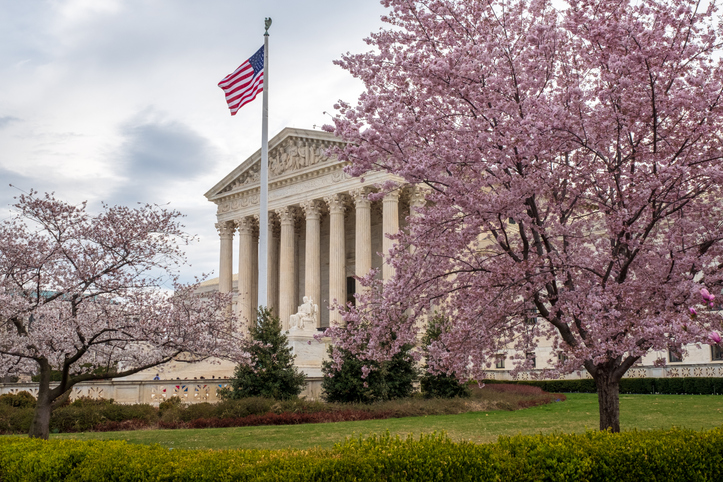Egyptian government ratified the bylaws of the new law regarding
NGOs after the Law No.70 of 2017 was heavily criticized for
imposing hefty restrictions on the work on thousands of NGOs
operating within Egypt.
The new governing law is Law No.149 of 2019, the regulations
were issued by Prime Ministerial Decree 104 of 2021. The law
guarantees the freedom of civil work and the independence of NGOs,
and becomes vital as it promotes the culture of human rights and
volunteering within Egypt. The main characteristics of the reformed
law is the establishing of an NGO.
For establishing an NGO a simple notification to the competent
authority is necessary as per Article 2 of Law
149/2019 which stipulates: “The establishment of
a National Association shall be pursuant to a notification
submitted to the administrative authority on the form it specifies,
and fulfilling all documents stipulated in the following articles.
It shall acquire the legal personality upon notification, and every
natural or legal person has the right to join or withdraw from it
in accordance with the provisions of this law. Any notification
that does not complete all the data and documents required in
accordance with the form prepared for that purpose shall not be
considered a notification that produces any legal
effects.”
Some NGOs were worried that the word ‘notification’
meant ‘licensing’, however, the law means by the word
notification, that once the authority is notified, the NGO can
immediately begin engaging in its activities without the need to
wait on any authoritative decisions. The effect of the notification
enters into force as soon as it is received by the administrative
body.
The government has the authority for a period of 60 days to
suspend the activity or registration should it find that the
objectives or activity of any of the organizations violates the
constitution or is prohibited or criminalized by the Egyptian Law,
nonetheless, the NGO shall have the right to address the violation
or challenge the government’s decision before the relevant
court within the 60 day period.
Pursuant to Article 9 of the abovementioned
Law “The administrative authority shall provide
the applicant for establishing the association with a receipt
indicating receipt of his notification, indicating the time of
receipt of the notification, its date, and the person who received
it. It is not permissible to refrain from accepting notification
papers unless they do not meet the data, information, or documents
required by law.
If it becomes clear to the administrative authority within a
period of sixty working days from the date of notification that
among the association’s purposes is an activity that violates
the constitution or is prohibited or criminalized according to the
Penal Code or any other law, or that the notification data and its
annexes are incomplete or incorrect, it shall suspend the violating
activity or registration by a reasoned decision. The representative
of the founding group shall be notified by registered mail or by
any other means of communication stipulated in the bylaws of the
association to take the necessary action. In this case, the
representative of the founding group has the right to rectify the
fault, complete the data, or appeal this decision before the
competent court within sixty working days from the date of being
notified of it.”
It is worth noting that under the old law, the registration fee
was 10,000 EGP, however, the ratified law granted a privilege as it
reduced the maximum fees to register an NGO from 10,000 EGP to
5,000 EGP as per Article 8(6).
Some foreigners may wonder whether it is possible for them to
join NGOs or not, yet, as per the new Law, there is no requirement
placed by the law that the founder/founders of an NGO whether legal
or natural or both must be Egyptians. Article 5 conveys that the
reformed law increases the number of foreign member of any NGO in
Egypt from 10% to 25%.
With due consideration, the law set some requirements under
which it forces all NGOs to abide by all principles of transparency
and good faith. Article 7 states what NGOs must keep in their
headquarters, as the following requirements must be kept up to date
at all times: All documents relevant to NGO.
- Internal rules
- Membership records
- Subscriptions
- Minutes of BOD meetings
- Expenses
- Bank accounts
- Real estate properties
- Records of donations
- Data on foreign financing
Nevertheless, there are some prohibited activities that
shouldn’t be practiced by the NGOs, inter alia:
- Any activity that violates national security, public morals and
public order - An NGO cannot be involved in any political activity
- Cannot enter into an agreement with a foreign entity
- Conduct opinion polls and surveys
- Rely on foreign persons as experts, volunteers or employees
without the acceptance of the competent authority - Participate in any workshops abroad without the approval of the
authorities - Cannot pursue any funding election campaigns.
Noting that, NGOs can engage in any activity that allows them to
fulfill their objectives, however, they must take into
consideration the national development plans and community needs.
For the purposes of engaging in those activities, NGOs are
permitted to receive funds from Egyptian natural or legal persons
from inside Egypt and from foreign NGOs that have authorization to
run in Egypt. The law did not put a cap for cash funds, however,
the incoming funds must be relatively compatible with the activity
performed by the organization. Article 30 permits representatives
of the Ministry of Social Solidarity to monitor all activities of
an NGO by entering the headquarters to sentry their activities and
review all documents and data.
It is worth mentioning that NGOs enjoys some benefits that are
outlined in Article 17 which stipulates:
“Without prejudice to any benefits stipulated in another law,
associations, civil society institutions and unions established in
accordance with the provisions of this law shall enjoy the
following benefits:
- Exemption from registration and registration fees, the burden
of which falls on the association in all types of contracts to
which it is a party, such as property contracts, mortgages, or
other real rights, as well as fees for authenticating
signatures. - Exemption from taxes and stamp fees currently imposed and
imposed in the future on all contracts, agencies, documents,
printed papers, records, etc., the burden of which falls on the
association. - Exempting built properties owned by the association from all
real estate taxes, provided that the association’s right to own
real estate is limited to properties that enable it to achieve its
purposes only, and it is not allowed to change the activity except
with the approval of the competent Minister. - Donations made to associations are considered an obligation on
the donor’s income, not exceeding (10%) of his net income. - Exemption from customs taxes and other fees imposed on the
equipment, machines, devices, production supplies, and cars
imported, as well as the gifts and aid received from abroad, by a
decision of the Prime Minister based on the proposal of the
competent Minister and the presentation of the Minister of Finance,
and on the condition that these things are necessary for its basic
activity. It is prohibited to dispose of durable items, including
those determined by a decision of the competent Minister in
agreement with the Minister of Finance, before the passage of five
years unless the taxes and customs duties due on them are
paid. - The consumption of water, electricity and natural gas be
treated as domestic consumption, provided that a certificate is
issued from the competent Ministry not to engage in commercial
activity.”
Notwithstanding, the activity of NGO is not limited to Egyptian
NGOs only, but also Foreign NGOs can practice any of the NGOs
activities on the territory of Egypt. Whereas Article 65 of
the aforementioned law states: “Foreign
non-governmental organizations may be permitted to practice one or
more activities of associations and civil society institutions
subject to the provisions of this law in accordance with the rules
established therein for a specific period determined by the
competent Minister in the same permit. The organization may not
undertake any activity in the Arab Republic of Egypt unless it
obtains a permit from the competent Minister.”
The abovementioned article outlines the framework of procedures
should foreign NGOs want to operate in Egypt and receive a license.
Followed by Article 66 which outlines that foreign NGOs are
required to submit a request to be given a license to the Ministry
of Foreign Affairs including all necessary data. Article 67 compels
all foreign NGOs to pay a fee of 50,000 EGP which will see a 20%
increase on renewal of the license.
Nonetheless, as per Article 68 foreign NGOs are prohibited from
being involved in any political activities including, funding of
political parties, religious activities, or any activating
violating the law or public order. Moreover, any foreign NGO in
Egypt cannot transfer money to foreign entities or individuals from
its bank accounts without the permission of the Ministry as per
Article 70. Additionally, to amend, renew or cancel a foreign NGOs
license this must be submitted to the Central Unit for Associations
and Civil Work as per Article 76. Similar to Egyptian NGOs, Article
74 allows the competent Minister to suspend or revoke the NGO’s
license should it violate the law or rules of the licensed
activity. If the authority finds a threat to national security or
public infringement it has the right to revoke the license.
Penalties impositions:
Articles 94-97 outline all the penalties that would be incurred
on an NGO should it violate any of the aforementioned activities. A
fine between 100,000 -1,000,000 EGP on an NGO that operates without
the permission of the Ministry of Social Solidarity, to transfer or
receive any funds without prior approval of the competent
authorities. A fine of 50,000- 500,000 EGP on an NGO that would
spend any of their funds on an activity that is seen by the
authorities to violate any of the aforementioned laws such as
violating public policy or order. The previously mentioned penalty
is incurred on any NGO that declines to provide any requested data
or information to the Ministry about the NGO’s activities and
finances. All and any bank accounts, and assets owned by an NGO can
be seized by the Egyptian authorities as per Article 97, should it
be found guilty by the courts of violating any law.
Conclusively, Law No.149 of 2019 conveys a vast improvement in
comparison to Law No.70 of 2017 in the establishment of NGOs, the
security measures places, and the penalties incurred on NGOs should
they violate any laws. NGOs can be foreign or local and have
benefits and prohibited laws that can cause them to shut
immediately. Most importantly, they are exempted from paying
customs duties, or import tax on any machine linked directly to
their activity, and lastly cannot operate without the prior
approval of the Ministry of Social Solidarity.
The content of this article is intended to provide a general
guide to the subject matter. Specialist advice should be sought
about your specific circumstances.
#Overview #Law #Governing #NonGovernmental #Organizations #Egypt #Terrorism #Homeland #Security #Defence










